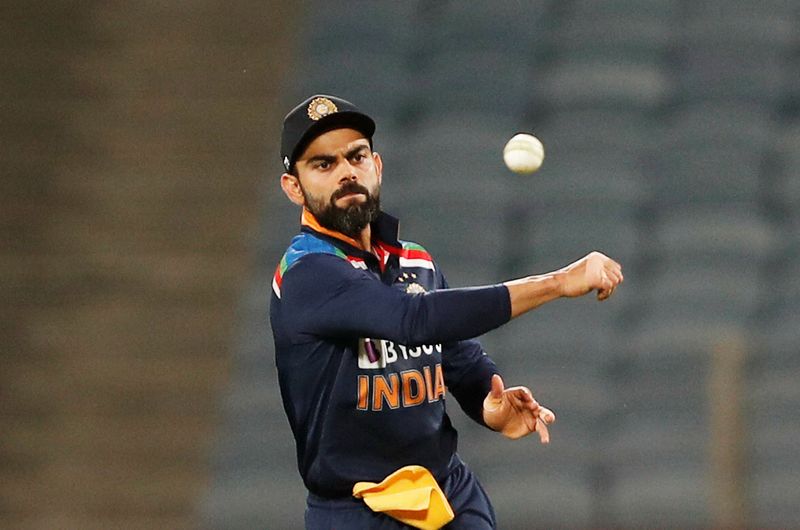NEW DELHI (Reuters) – India test captain Virat Kohli confirmed his availability for the one-day leg of the team’s South Africa tour on Wednesday and said he was “tired” of explaining there was no rift between him and the team’s new white-ball captain Rohit Sharma.
A month after his own decision to relinquish 20-overs captaincy, Kohli was stripped of one-day leadership in a shock move with Rohit put in charge of both the limited-overs squads.
Kohli will lead India in a three-test series, beginning in Centurion on Dec. 26, in South Africa and rumours were rife that the 33-year-old would skip the three ODI matches that follow.
“I was always available,” Kohli told a pre-departure news conference.
“You should not be asking me this question, honestly… I am available for selection for the ODIs in South Africa and I’m always keen to play.”
Under Kohli, India made the semi-finals of the ODI World Cup in 2017 but could not advance beyond the group stage of this year’s Twenty20 World Cup.
Kohli remains without a title in the Indian Premier League too while Rohit led Mumbai Indians to a record five IPL titles.
The chemistry between the two batting stalwarts is fodder for media speculation but Kohli said he never had any issues with Rohit.
“Rohit is a very able captain and we have seen it in the IPL as well as for India. (Head coach Rahul) Dravid is also very valuable. Both of them will have my absolute support,” Kohli said.
“There is no problem between me and Rohit. I have been clarifying for the last two and a half years or so. I’m really tired.”
Kohli, however, felt his removal as the ODI captain was abrupt, a decision conveyed barely 90 minutes before selectors met on Dec. 8 to pick the test squad for South Africa.
“The chief selector discussed with me the test team, to which we both agreed. And before ending the call, I was told the five selectors had decided I will not be the ODI captain, to which I replied, ‘okay, fine’, and in the selection call afterwards, we chatted about it briefly,” he said.
“That’s what happened. There was no communication prior to that at all.”
(Reporting by Amlan Chakraborty in New Delhi; editing by Christian Radnedge)






















